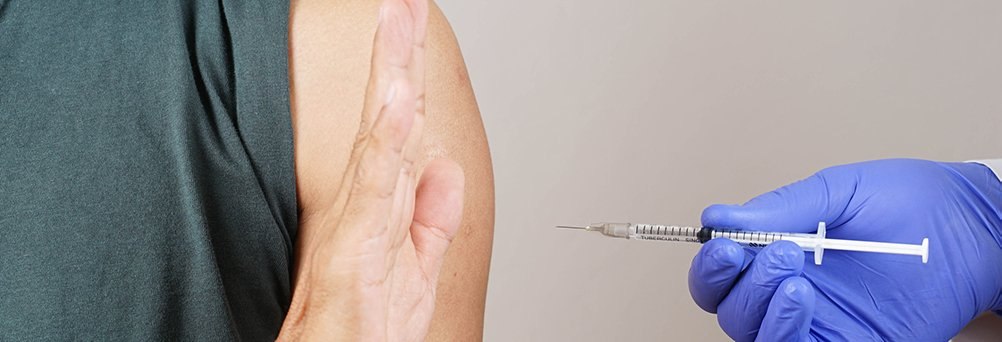Besides the concern about any possible impact of the COVID-19 inoculation, those who reject this new vaccine (as well as those who aren’t sure) are far more likely to believe conspiracy theories about this vaccine as well as about vaccines in general.
Nine in 10 vaccine rejectors (89%) believe that the COVID-19 vaccine was rolled out without adequate testing. Three in five vaccine rejectors believe that infertility (62%) or changes in a person’s DNA (60%) could occur with the vaccination. Half of vaccine rejectors think the vaccine includes a microchip (50%), About half of vaccine rejectors (49%) also think vaccines have been shown to cause autism.
Those who don’t know whether or not they will be vaccinated are much less likely to think these statements are true. However, most of them (58%) believe there has not been adequate testing. Among the public overall, 42% think there hasn’t been enough testing. But most disagree.
One striking finding in this poll is who claims to have been directly affected by the virus. One in 12 American adults (8%) say they have personally tested positive for COVID-19. As has been the case among elected officials, Republicans are more likely than Democrats to say they have had a positive COVID-19 test. Among Democrats and Independents, 6% claim they have tested positive – compared with 14% of Republicans.
See the toplines and crosstabs from this Economist/YouGov poll
Methodology: The Economist survey was conducted by YouGov using a nationally representative sample of 1,500 US Adult Citizens interviewed online between May 8 - 11, 2021. This sample was weighted according to gender, age, race, and education based on the American Community Survey, conducted by the US Bureau of the Census, as well as 2016 Presidential vote, registration status, geographic region, and news interest. Respondents were selected from YouGov’s opt-in panel to be representative of all US citizens. The margin of error is approximately 2.7% for the overall sample
Image: Getty








